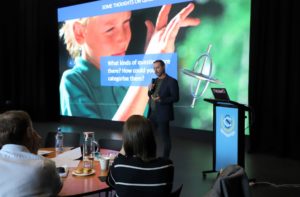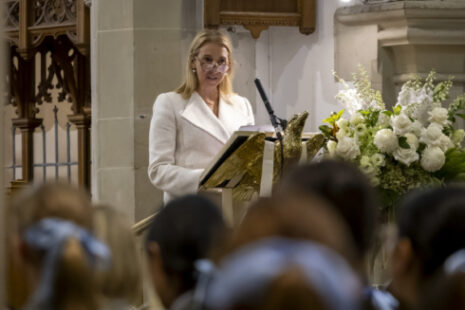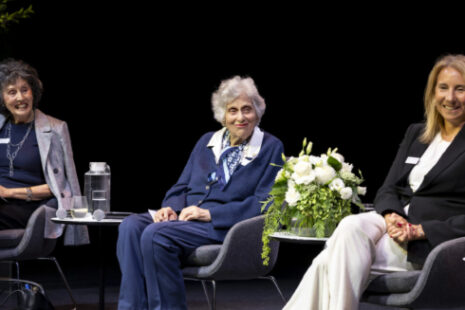The Knowledge Makers

Interestingly, in 2013, 93% of employers surveyed by the Association of American Colleges and Universities agreed with the statement that a (job) candidate’s demonstrated ability to ‘think critically, communicate clearly, and solve complex problems is more important than their undergraduate major.’
In other words, ‘what you know’ is not as important as ‘how you know.’ This reveals the need to prioritise critical and innovative thinking over recalling content knowledge.
The question for educators is – how should we respond? How do we prepare our students to become the knowledge makers, the innovators, and the problems solvers of the future?
Ultimately, we need to make education more about thinking and intellectual challenge.
Questioning our approach to classroom thinking to enhance the student experience has shaped much of our Professional Learning Seminars over the past three years. Through our partnership with Dr Peter Ellerton, from the University of Queensland’s Critical Thinking Project, we have explored the following three questions:
How do you know students are thinking in your classroom?
How do you plan for student thinking?
How do you give feedback on student thinking?
St Catherine’s School’s Classroom Thinking Agenda deliberately moves our teaching and learning practices away from simple lecturing and the recall of memorised facts into a dynamic culture of continual learning, where students are asked to select, shuffle, justify, re-combine and apply existing knowledge to create innovative ideas and fresh solutions.
As we step forward each year with new VCE Study Designs, there are more frequent calls for students to have a stronger capacity for critical and analytical thinking. Of course, these thinking skills are also desired well beyond school as they shape much of the knowledge economy and the changing nature of the workforce. Students resorting to a learning approach captured in the sentiment of “just tell me what I need to learn” and simply memorising work is no longer considered a successful, nor an effective, learning option.
On Monday, our Senior School teaching staff continued their professional learning journey during a session with Dr Ellerton, focusing on the theme – Cultivating the Thinking Classroom.

Dr Peter Ellerton, from the University of Queensland, Critical Thinking Project explored cultivating the thinking classroom with Senior School staff this week
During the session, Ellerton spoke of the importance of teacher intent in question design, narrowing this specifically to the language adopted within assessment tasks and classroom practice. Ellerton notes that through effectively opening the lines of inquiry, teachers can explore student interpretations, develop rigour in student reasoning, provide feedback and challenge thinking.
Through the effective development of questions by teachers, students are encouraged to challenge their thinking and explain and justify their responses. From this, teachers then have the power to activate many cognitive skills that shift students’ responses from guess work or speculation to considered judgments.
During a recent discussion with Associate Professor of Education and Enterprise, Dr Philip Cummins and educational thought leader, Mr Adriano Di Prato, on their Game Changers podcast, I share why our Year 9 Critical Conversations Program and Senior Years Learning Model, are platforms for the delivery of our Thinking Agenda and how St Catherine’s realises its vision of graduating women of the future through building the capacities of our staff. To listen to the Game Changers podcast, click here.
I hope you enjoy listening to the podcast, and possibly combine your listening with a walk over the weekend.





